classic short stories, tales, and novellas
Piazza Tales is a collection of herman Melville’s shorter fiction. He started writing short stories as a desperate commercial venture to provide for his family, following the disastrous reception of Moby Dick on its first publication in 1851. His career as a writer had been in something of a steady decline from the start, and yet as he became less and less successful, he produced the works for which he is now held in the very highest regard – as a great artist who could tap into the fundamentals of the American nineteenth century psyche.
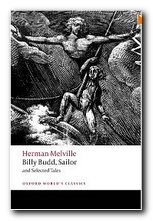 His stories are clouded in ambiguity and steeped in multiple levels of complexity. They have narrators whose intentions are not clear.They are often stories with very little narrative in the normal sense of that term. ‘A Paradise of Bachelors’ is little more than an account of a lavish dinner party in London’s Inns of court related in mock-heroic terms. Its companion piece ‘The Tartarus of Maids’ is the report of a visit to a paper mill.
His stories are clouded in ambiguity and steeped in multiple levels of complexity. They have narrators whose intentions are not clear.They are often stories with very little narrative in the normal sense of that term. ‘A Paradise of Bachelors’ is little more than an account of a lavish dinner party in London’s Inns of court related in mock-heroic terms. Its companion piece ‘The Tartarus of Maids’ is the report of a visit to a paper mill.
The narrator of ‘Cock-A-Doodle-Doo!’ is shaken out of a misanthropic mood by the cheerful crowing of a neighbour’s cockerel. But when he eventually decides to buy the bird for its life-affirming powers, its owner dies – and so does the bird.
‘Bartelby the Scrivener’, one of his most famous stories, is startling in its simplicity. An elderly Wall Street solicitor employs a younger man as a clerk to copy legal documents. Bartelby works in complete isolation, and lives on nothing but ginger biscuits, sleeping in the office. But then he stops working, meeting every request to do so with the mantra “I prefer not to”. The solicitor is driven to good-natured despair, and finally has to move office in order to be rid of him. Bartelby is eventually placed in prison where he starves himself – and dies.
Melville’s prose is so allusive, so embedded with metaphors and symbols that it often seems that whilst writing about one thing he is actually talking about another. In ‘I and My Chimney’ for instance a man has a house with an enormous chimney. He takes laboured and curmudgeonly pride in the way it dominates the architecture of the entire building. But his wife, who restlessly devises new schemes for ‘improvement’, wants it pulled down. A struggle takes place between them, which he wins by stubbornly refusing to change his views.
It’s impossible to escape the interpretation that the chimney (and the house itself) represents the narrator’s (and the author’s) psyche, over which he wishes to assert his autonomy. And you don’t need a brass plaque on your front door to realise that it is also a commanding phallic symbol.
This collection includes two of Melville’s most accessible masterpieces. Benito Cereno is his re-telling of a historical incident involving a revolt on board a Spanish slave ship. The tale (a novella) is a study in sustained irony of the most chilling kind. Melville tells the story backwards by describing events as perceived by one ship’s captain when he goes to help the other. Everything he sees is menacing and inexplicable. Only when a disaster is narrowly averted is the reason for and the true horror of these mysterious conditions revealed.
The second novella is Billy Budd another apparently simple story with a naval setting. Billy Budd is a popular young sailor who is impressed into service on a British warship. His good looks and his naivety become the focus of malevolent attention from the ship’s master-at-arms, who falsely reports him to the captain for plotting a mutiny.
When confronted with this accusation, Billy becomes tongue-tied and strikes the master-at-arms with a blow that kills him. The captain is very sympathetic to Billy, but feels compelled to uphold the absolute code of military discipline. Billy is condemned to death and hanged the next morning.
This is a tale that has been interpreted in many ways – the most popular of which is Billy as Adam, fallen from paradise and grace into a cruel world. Claggart, the master-at-arms is seen as the devil or serpent – the embodiment of evil. And the ship’s captain, Vere, as a God-like figure, torn between paternal love and the need to exert justice.
Three of these stories have become landmarks of nineteenth century American literature. All of them are worth reading – and there is an added bonus, Melville has an amazingly rich prose style which combines a rich vocabulary, a slightly archaic form of syntax, and an amazingly flexible narrative voice in which he thinks out loud, talks to his characters, asks himself questions, and speculates freely about the very stories he is telling.
© Roy Johnson 2010
Herman Melville, Billy Budd, Sailor and Selected Tales, Oxford: Oxford University Press, 2009, pp.410, ISBN: 0199538913
More on literature
More on the novella
More on literary studies
More on short stories
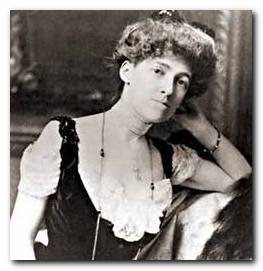
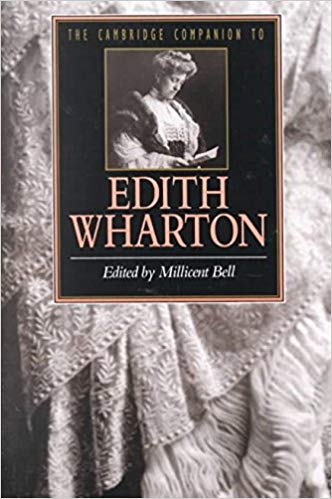
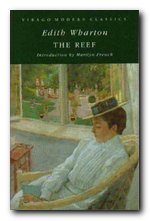 Five months later he joins Anna at Givré, her country chateau where they meet to plan their future. Anna wants to help her stepson Owen, who wants to marry someone who does not meet with the approval of his grandmother, the dowager Marquise de Chantelle. Darrow plans to marry Anna and take her on his next diplomatic assignment to South America. However, it turns out that Anna has hired a governess for her daughter Effie — none other than Sophy Viner. Darrow feels acutely embarrassed by the situation, and Sophy pleads with him not to say anything that will threaten her employment.
Five months later he joins Anna at Givré, her country chateau where they meet to plan their future. Anna wants to help her stepson Owen, who wants to marry someone who does not meet with the approval of his grandmother, the dowager Marquise de Chantelle. Darrow plans to marry Anna and take her on his next diplomatic assignment to South America. However, it turns out that Anna has hired a governess for her daughter Effie — none other than Sophy Viner. Darrow feels acutely embarrassed by the situation, and Sophy pleads with him not to say anything that will threaten her employment.
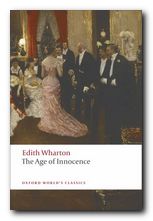 The Age of Innocence
The Age of Innocence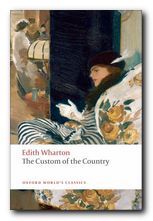 The Custom of the Country
The Custom of the Country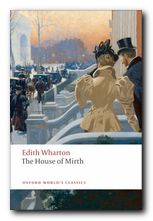 The House of Mirth
The House of Mirth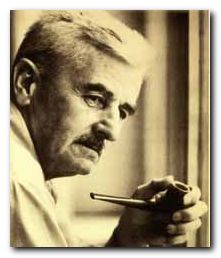 William Faulkner (1897—1962) grew up in Oxford, Mississippi, and lived there for the rest of his life – with only brief intermissions for travel and working in Hollywood as a screenwriter. He was one of the major American writers of the early twentieth century. He established the white protestant version of the American south, reflecting its values of that period – the collapse of the white land owning aristocracy and the inability (at that time) of the blacks to shake off the legacy of slavery. Faulkner was a literary experimentalist, influenced by the modernist period, and he sometimes makes extreme demands on his readers. He uses stream of consciousness, fragmented chronology, shifting point of view, and multiple narrative voices. Even in some of his plain narratives, the story is expressed in sentences which sometimes go on for two or three pages at a time.
William Faulkner (1897—1962) grew up in Oxford, Mississippi, and lived there for the rest of his life – with only brief intermissions for travel and working in Hollywood as a screenwriter. He was one of the major American writers of the early twentieth century. He established the white protestant version of the American south, reflecting its values of that period – the collapse of the white land owning aristocracy and the inability (at that time) of the blacks to shake off the legacy of slavery. Faulkner was a literary experimentalist, influenced by the modernist period, and he sometimes makes extreme demands on his readers. He uses stream of consciousness, fragmented chronology, shifting point of view, and multiple narrative voices. Even in some of his plain narratives, the story is expressed in sentences which sometimes go on for two or three pages at a time. As I Lay Dying (1930) is a good point to start. It charts the journey of a poor family to bury their mother Addie Bundren in Jefferson. They make the coffin themselves and survive crossing the flooded Yoknapatwapha river, a fire, and other largely self-inflicted problems, to finally reach their goal. The novel is told in the rapidly intercut voices of the family members – including the dead mother. It is simultaneously funny, and tragic – a small scale epic which Faulkner wrote in the space of six weeks.
As I Lay Dying (1930) is a good point to start. It charts the journey of a poor family to bury their mother Addie Bundren in Jefferson. They make the coffin themselves and survive crossing the flooded Yoknapatwapha river, a fire, and other largely self-inflicted problems, to finally reach their goal. The novel is told in the rapidly intercut voices of the family members – including the dead mother. It is simultaneously funny, and tragic – a small scale epic which Faulkner wrote in the space of six weeks. The Sound and The Fury is generally regarded as his greatest work. It is a narrative tour de force in which Faulkner views the decline of the south through the point of view of four characters. The novel centres on the once-aristocratic Compson family, who appear in his other novels. The siblings Quentin and Caddy fall from a state of innocence and succumb to the family pattern of incest, erotomania, and suicide. One of their brothers is severely mentally handicapped. The first part of the novel is told entirely from his point of view – and of course he ‘sees’ the truth of much that is going on. The other narrator is the black servant who is powerless but ‘endures’. It is a work of astonishing brilliance, written in a sombre and lyrical mood.
The Sound and The Fury is generally regarded as his greatest work. It is a narrative tour de force in which Faulkner views the decline of the south through the point of view of four characters. The novel centres on the once-aristocratic Compson family, who appear in his other novels. The siblings Quentin and Caddy fall from a state of innocence and succumb to the family pattern of incest, erotomania, and suicide. One of their brothers is severely mentally handicapped. The first part of the novel is told entirely from his point of view – and of course he ‘sees’ the truth of much that is going on. The other narrator is the black servant who is powerless but ‘endures’. It is a work of astonishing brilliance, written in a sombre and lyrical mood. Sanctuary (1931) is an example of Faulkner writing simultaneously at his best and worst. The novel was produced to make money, and is a sort of rural South whodunit which centres on a particularly grizzly crime. All the southern Gothic elements are here. The main plot revolves around Temple Drake, a coquettish college girl who likes to secretly sneak out of her college dorm to attend dances. She takes one step too far onto the wild side, and the result is a helter-skelter ride down into the moral abyss. The novel also includes a psychopathic bootlegger, corrupt local officials, the trial of an innocent man, and a public lynching. It was Faulkner’s only best-seller.
Sanctuary (1931) is an example of Faulkner writing simultaneously at his best and worst. The novel was produced to make money, and is a sort of rural South whodunit which centres on a particularly grizzly crime. All the southern Gothic elements are here. The main plot revolves around Temple Drake, a coquettish college girl who likes to secretly sneak out of her college dorm to attend dances. She takes one step too far onto the wild side, and the result is a helter-skelter ride down into the moral abyss. The novel also includes a psychopathic bootlegger, corrupt local officials, the trial of an innocent man, and a public lynching. It was Faulkner’s only best-seller.